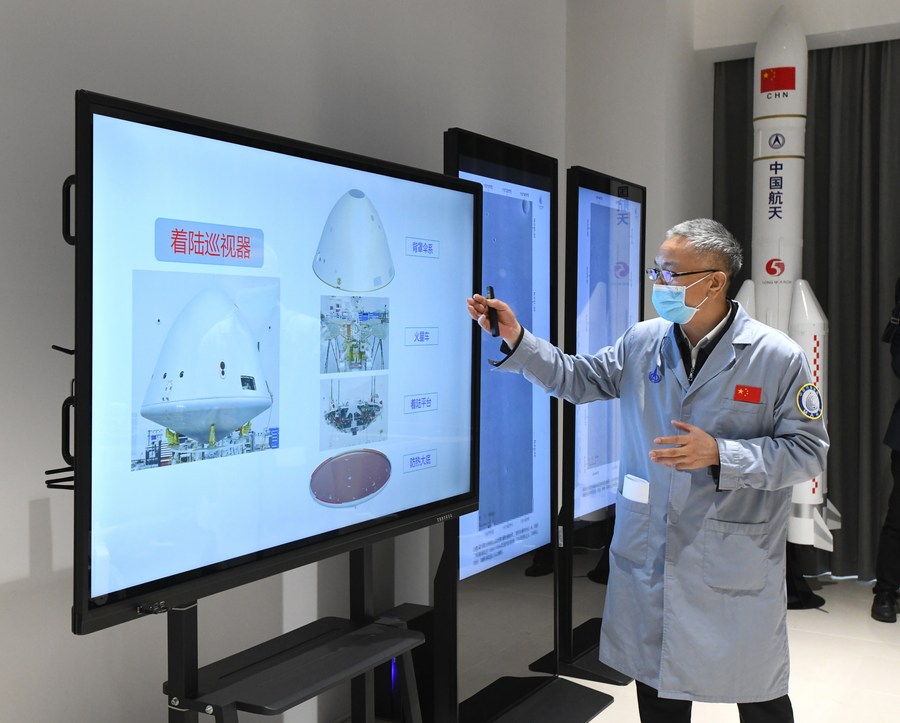Ministry maps out plans for sci-tech for 2022
By ZHANG ZHIHAO | China Daily | Updated: 2022-01-08 08:10

China will carry out major research projects, support the growth of science and technology companies, train more quality talents and contribute more to global science projects and governance this year, the Ministry of Science and Technology said on Thursday.
Wang Zhigang, the minister of science and technology, said during a virtual work meeting of China's science and technology sector that the nation had achieved a positive start with regard to its 14th Five-Year-Plan (2021-25), highlighted by the fact that there had been many original breakthroughs in basic sciences and core technologies.
Some notable feats included landing the nation's first rover on Mars, launching its first sun observation satellite named Xihe, synthesizing starch from carbon dioxide, new quantum computers, and seven COVID-19 vaccines approved to combat the novel coronavirus.
Last year, China climbed two spots to 12th place among 132 countries and economies on the Global Innovation Ranking published by the World Intellectual Property Organization. Beijing, Shanghai, and the Guangdong-Hong Kong-Macao Greater Bay Area were also ranked among the top 10 science and technology clusters in the world, he said.
Wang said that the Central Economic Work Conference, which was held in December, had stressed the importance of science, technology and innovation in building a modernized economic system.
As a result, Wang said the priorities for China's science and technology sector this year will focus on bolstering the nation's strategic research capacity, enhancing research in basic sciences and core technologies, supporting companies to play a bigger role in creating innovations, fostering quality talents, optimizing China's research and innovation environment and efficiency, and expanding international cooperation.
In particular, China will accelerate the progress of its Science and Technology Innovation 2030 Major Projects, which include a range of mega research projects in frontier sciences such as artificial intelligence, quantum technologies, brain science, advanced robotics and materials, and deep sea and deep space exploration.
China will carry out institutional reforms to bolster its research capability in strategic fields, including restructuring its State Key Laboratories, Wang said. Top Chinese science and technology leaders, as well as small and medium-sized companies, will receive more support to play a bigger role in making innovations.
Optimizing project appraisal and funding management, training quality young talents and capable research teams, participating in global research projects and ethical governance in science and technology will also be key objectives this year.
These measures aim to provide better services to research entities, create more original breakthroughs with global influence, strengthen the security and resilience of China's industrial supply chains and improve people's lives, Wang said.
Taking these steps will improve the overall efficiency of China's science and technology sector, and allow it to play a strategic role in supporting the country's development and security in preparation for the opening of the 20th National Congress of the Communist Party of China later this year, Wang said.
























